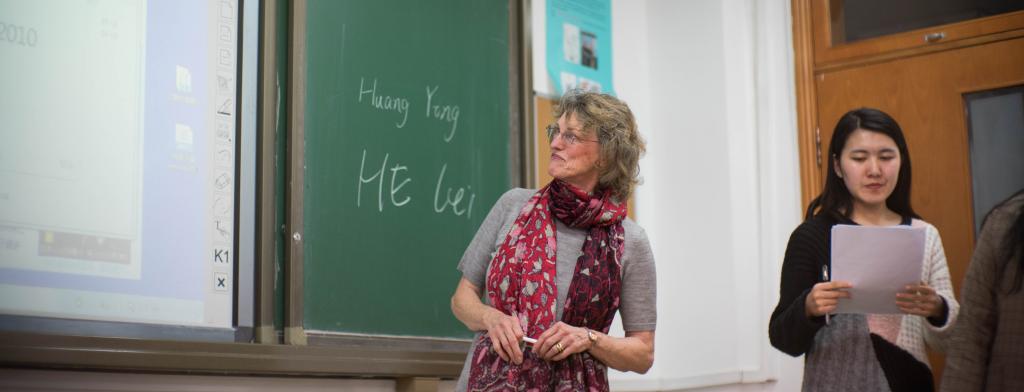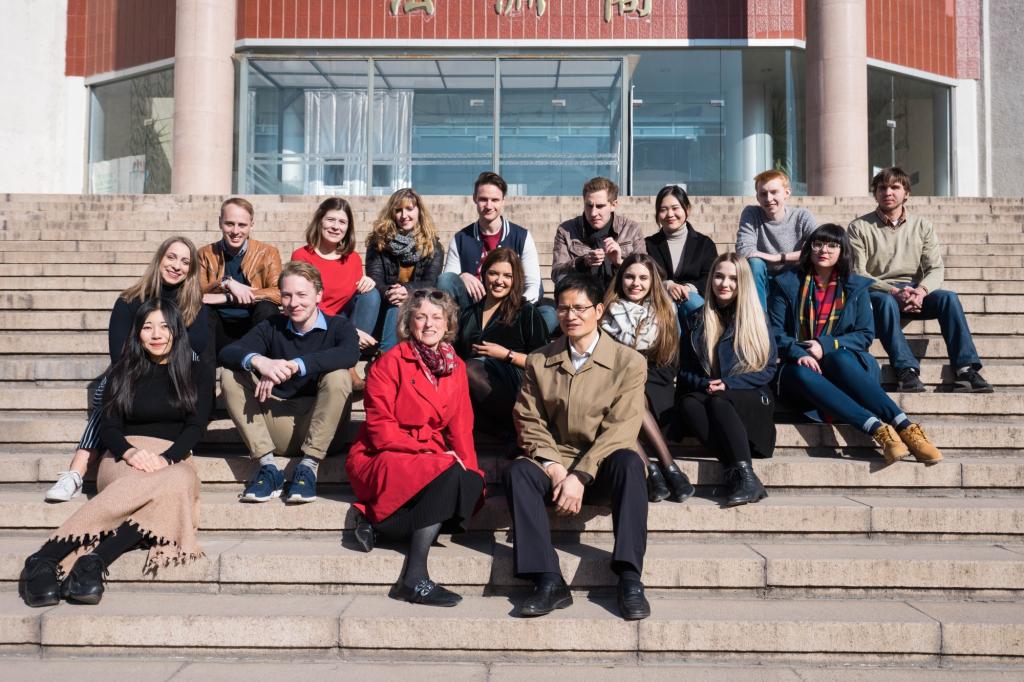1. You have many classes, lead vis team, organized group meeting, coffee talk, but in our minds, you are always passionate and energetic. How do you keep your enthusiasm for your career?
Answer: I love to teach. It is not like a job, it is like a passion, especially when students are genuinely interested and involved–as I find Chinese students to be.
2. How you plan your day? Is there any tip about manage time or finish work effectively?
Answer: I try to have at least one hour after I wake up for "quiet time", when I think about the day over a cup of coffee. I then have an idea of how the day will proceed, about that which I "must" accomplish, and about that which I would "like" to accomplish. For students I know this would be hard if you live with others, especially in a small accommodation. However, you can find a way: sit alone in the cafeteria or on a bench–or in your bed, asking your roommates to give you your "quiet time".
3. Students in CESL are under too much pressure, especially who have not studied law before, those students are required to get more credits, so they have more than ten classes every term. Do you have some suggestions for these students? and do you have some suggestions about facing pressure?
Answer: I would suggest some way for students who have not studied law in undergraduate school to make up the background necessary during the summer, and not to have to carry extra classes during the semester–but arranging this may not be possible at the moment. However, students should give it some thought and try to urge the university and CESL to make some arrangements.
With regard to handling pressure, my prescription is enough sleep and regular exercise. I do both faithfully. I know you students say you do not have enough time to sleep, must less exercise–but you can study better in less time with sleep and exercise. Meditation also helps, if it is something that appeals to you. In the end, it is not the pressure that is the problem; it is how you handle the pressure.

Prof. Susan Wintermuth in her class
4. In CESL, students have opportunity to study EU-Laws, and it would be a painful but meaningful experience. What are your suggestions about studying EU laws?
Answer: A good learning method is to first study the title and main headings of the chapter or the reading material; then ask yourself if you know what they mean. If not, research in Chinese. Then return to the English reading material and go through the headings again. Read enough to understand the main points under each heading. You do not need to understand each word, at least in the first read-through. Then, when you understand the main topic and the big picture as reflected in the headings and subheadings, return to read word by word if you have the time.
5. You teach at Bilkent University and Stockholm School of Economics spring and summer semesters. What are differences between college classroom of them and that in China?
Answer: I find Chinese students generally more interested in learning, more involved and invested in the class work, than in some Western countries–perhaps due to the competition or perhaps due to the rightful focus on education here in China. This makes teaching in China a joy. On the other hand, teaching on some foreign campuses can be a more diverse experience. For example, Bilkent offers gyms, and regular music and art events. If nothing else, foreign campuses usually have coffee shops or lounges where students can meet and chat, and where I can meet and chat with them.
6. What impressed you during teaching in CESL?
Answer: I am always impressed when students are able to be creative with the law and the facts in support of one side or the other in a legal dispute, which is the common-law adversarial method and usually difficult for any civil law trained student to catch onto quickly.
7. What is your motto?
"Always look on the bright side."
8. Why did you choose to work in China? What are the difficulties?
Answer: It was only accidental that I came to CESL to replace a colleague at the University of Hamburg, who was not able to come as flying faculty at the last minute. I loved it and wanted to return. Professor JULIUS suggested I apply for the position I now have, and Professor FANG hired me and gave me good advice about teaching to the needs of first year Chinese masters students.
The hardest part? It is learning four tones.
9. What is your opinion about "staying in big city after graduate "and" going back to work in hometown"?
Answer: It is a very difficult choice. I like small towns, where I can enjoy a high quality of life. If I do not need to raise children, I would probably choose to stay in a small town. I understand that many may want to stay in a big city, if it offers a better job opportunity and better education for the young children you will eventually have, but that will change. China is changing quickly and soon there will be good career opportunities and first-class education in the smaller cities, too.
10. Do you have anything else to tell students?
Relax more. Take up a hobby: basketball is good; running or badminton is good. You have three hours in a week you can devote to your physical and mental health. Just do it, and take a friend with you. Also, travel when you are able. It is the best education.

Prof. Susan Wintermuth and Prof Xie Libin with students
Interview by Yue Wanzhen and Gao Xingtang(CESL double master students from 2018 intake)
Photo by Yu Donghang(CESL double master students from 2018 intake)
Edited by Prof. Susan Wintermuth
